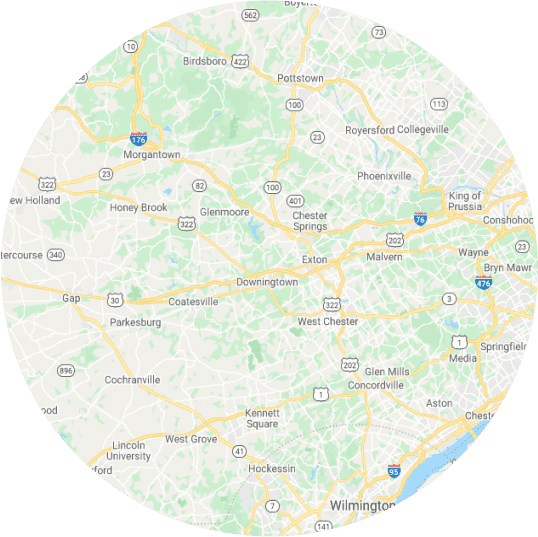How to Choose the Right Water Filtration System
With so many available water filtration options on the market, it’s important to know how to choose the right water filtration system for your home. Because your quality of life is only as good as the quality of your water, finding the purification method that best suits your needs is one of the most important things you can do for your health and the health of your family. Are you ready to improve your water? Well, the team at Mattioni is here to tell you how to choose the right water filtration system to make that happen!
Common Contaminants
Because not all water filtration systems filter out the same contaminants, it’s important to identify the contaminants that are present in your water. You can use an at-home test for your water, or have a local professional perform a test and provide you with a quality report. These contaminants can be organized into the following categories:
1. Physical Contaminants
Typically involving the appearance of sediment or organic materials from soil erosion, this type of contaminant originates from lakes, rivers, and streams.
2. Chemical Contaminants
Either naturally occurring or man-made, chemical contaminants can include nitrogen, bleach, salt, pesticides, bacterial toxins, metals, or human and animal drugs.
3. Biological Contaminants
Also referred to as microbes, biological contaminants can include viruses, bacteria, parasites, and protozoan.
4. Radiological Contaminants
With and unbalanced number of protons and neutrons, radiological contaminants produce ionizing radiation in the form of cesium, uranium, or plutonium.
Identify the Issue
As the first step towards choosing the right water filtration system, you should identify the issues affecting your water. Because there are so many filtration systems that target different problems, you can narrow the search by learning which issues you need to target. Here are a few common water quality issues:
1. Acidic Water
Typically, acidic water manifests in the form of blue-green stains in your showers and sinks. This issue is a result of your water pH being too low, resulting in high acidity. Not only can this issue cause plumbing and staining problems, but it can also dissolve lead and copper into the water, leaving you with an unpleasant metallic taste.
2. Iron and Manganese
In addition to causing brown, red, yellow, and even black stains on your clothing and hair, iron and manganese can stain your appliances and fixtures as well. Also, the buildup of iron and manganese in pressure tanks, filters, plumbing, and water heaters can cause a reduction in your water pressure. Even worse, these metals can give your water a metallic taste and odor.
3. Chlorine Taste or Smell
Although most treatment plants use chlorine to purify our water supply, the presence of a chlorine taste or smell in your water is a disconcerting issue. You don’t gulp down the water from the swimming pool, so why would you want your household water to taste just like it? Well, the fact of the matter is, chlorine is necessary for purification at treatment plants, but it should not be present enough to smell and taste once it reaches your home. Not only does chlorine dry your skin and hair, but it can fade your clothes and dry out the rubber seals in your water-related appliances!
4. Rotten Egg Smell
If your water has an unpleasant rotten egg smell, you are likely dealing with the presence of hydrogen sulfide in your groundwater supply or hot water tank. While this can be a naturally-occurring contaminant, it can also be produced by sulfate-reducing bacteria. Not only can this contaminant cause food and water to have an unpleasant taste, it can also cause your hair and clothing to have an unpleasant odor. Furthermore, high concentrations of this hydrogen sulfide can corrode metal parts and appliances.
How to Choose the Right Water Filtration System
Now that you have hopefully identified your specific water problem, you can begin exploring your filtration options to tackle these issues head-on. To save you some research, here are some commonly-used filtration systems for the above-mentioned water problems:
For Acidic Water:
Typically, acidic water is treated with a pH water filter system that uses a water neutralizer. Here are two systems we recommend:
1. Whole-House pH Balancing Filters
This filtration system neutralizes acidity by using calcite, or magnesium oxide. With this system, water flows through the calcite or magnesium oxide in the water filter, and the mineral is dissolved into the water, neutralizing the acidity. Although this is an effective and simple filtration option, it can make water harder, so you may need to use it in conjunction with a water softener for the best results.
2. Proportional pH Balancing Injection Systems
Another option that works better on water with very low pH levels is a proportional pH balancing injection system. Although more costly, this system effectively removes acidity without hardening the water. Using a chemical feed pump, this system injects a precise amount of solution into the water to neutralize acidity.
To Remove Iron and Manganese:
Typically, the presence of iron and manganese affects all uses of your home’s water. Therefore, they must be removed using Point-of-Entry (POE) treatment systems to purify all water that enters your home. Here are two POE systems to consider:
1. Oxidizing Filters
Firstly, you should consider using an oxidizing filtration system, as it removes iron and manganese with one unit. Comprised of manganese- treated greensand and brim, the filter forms a coating that oxidizes dissolved iron and manganese. Then, the iron and manganese are filtered out of the water. Consequently, the combined oxidation and filtration of this system makes it effective in even treating raw water with iron and manganese.
2. Ion Exchange Water Softener System
Another alternative to a filtration system is an ion exchange water softener system. Although this system is used to treat hard water, it can also be quite effective in removing iron and smaller amounts of manganese from your water. The exchange process involves removing the impurities from the water and exchanging them for sodium. Then, a process of back-washing and regeneration remove iron and manganese from the resin bed.
For Removal of Chlorine Taste or Smell
Most of us know that it’s common practice for water treatment plants to use chlorine to purify water. However, these chemicals should not be present in your water once it reaches your home. If this is a problem you are facing, here are some solutions to explore:
1. Granular Activated Carbon (GAC) Filter
As another POE option, a granular activated carbon (GAC) filter is an effective solution. Used in a POE water cooler, GAC filters consist of raw organic materials like coconut shells, coal, and wood. Heat is used to activate the carbon, expanding the surface area. As a result, the expansive surface area and the carbon’s porous properties trap organic compounds, odors, tastes, and chemicals from water that passes through the filter.
2. Poly-phosphate Filter
The second POE option we recommend is a poly-phosphate filter. This system keeps unwanted chemicals out of your water by coating them with dissolved poly-phosphate particles. As a result, these poly-phosphate-coated chemicals cannot pass through the filter.
To Get Rid of That Rotten Egg Smell
Typically, water with a rotten egg smell indicates a problem with hydrogen sulfide gas in your water supply. Produced when sulfur bacteria break down sulfur compounds, this gas can be particularly prevalent in warm environments. To eliminate this unpleasant smell from your water, we recommend two solutions:
1. Manganese Dioxide
Oxidizing the gas and converting it to tiny sulfur particles, a manganese dioxide filter removes and traps hydrogen sulfide from your water. Additionally, this filtration system effectively oxidizes iron, making it an excellent solution for removing iron from water, too.
2. Activated Carbon
As a second option to remove hydrogen sulfide from your water, activated carbon filters can be very effective. With an activated carbon system, the pores of the carbon absorb and trap the gas, removing it from your water.
Leave It to the Mattioni Experts!
Now that you know how to choose the right water filtration system, you can take on anything with the Mattioni team! Our experts are dedicated to finding real solutions for homeowners like you. Get the professional service and results you deserve – call us today at 610-400-8510 or chat with us on our website!





